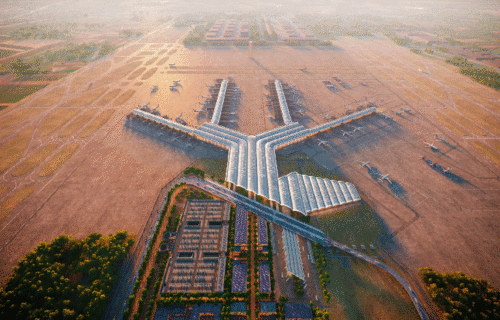Centralny Port Komunikacyjny (CPK) has begun the next major phase of its transport megaproject, launching a tender for the design and construction of a railway tunnel and underground station directly beneath the new airport complex west of Warsaw. The move marks one of the most technically ambitious components of Poland’s national transport programme, linking the future airport with the country’s emerging high-speed rail network.
The project, announced in late October, will create an underground connection forming part of the Warsaw–Łódź high-speed corridor, positioning the airport as the central interchange of the national rail system. The tunnel, stretching several kilometres, will house the platforms and passenger facilities of the new CPK railway station. The structure will serve both regional and long-distance services, allowing passengers to transfer between air and rail within a single integrated hub.
According to the programme outline, CPK aims to select contractors through a multi-stage process, with initial expressions of interest due by December 2025. Construction is expected to begin after design development and environmental review phases, with completion targeted around the start of the next decade. Once finished, the underground station will anchor one of Europe’s most advanced intermodal hubs, combining airport, rail and highway infrastructure.
The tender is divided into several packages covering the tunnel’s eastern and western sections and the central area where the station will be located. Each contract will include design, construction and fit-out works, requiring expertise in both large-scale civil engineering and rail systems integration.
The new tunnel is part of CPK’s wider investment plan to expand Poland’s transport capacity and improve connectivity between regions. The entire CPK programme, which also includes new high-speed lines and a greenfield airport, represents one of Europe’s most extensive infrastructure undertakings.
Officials describe the tunnel and station as a “backbone element” of the future system — a piece of infrastructure that will enable passengers to travel from Warsaw or Łódź to the airport in under 20 minutes. When completed, the project will not only reshape domestic mobility but also strengthen Poland’s role as a regional transport hub connecting Central Europe’s major corridors.
